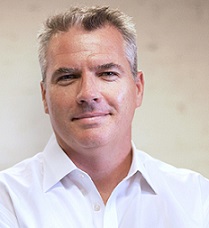 By John Smithwick, CEO of RoundingWell
By John Smithwick, CEO of RoundingWell
Twitter: @RoundingWell
Lately, there’s been a lot of noise around the use of big data in health care.
As the name implies, big data looks for patterns and trends in extremely large sets of information. And it’s big business: Frost & Sullivan projects that half of hospitals will be using advanced analytics software to power big data projects by 2016.
It’s easy to rationalize this big data boom. With advanced computing capabilities, sophisticated algorithms and reams of multi-sourced data, it promises to help researchers and clinicians tap into trends that can help create informed strategies to address major population health issues.
But big data isn’t the end-all-be-all for health care IT. Small data – acquiring specific data sets through data mining – also has the power to uncover correlations that can lead to improved patient care.
When health care organizations (HCOs) narrow their focus on the clinical data already available in digitized form and use health care IT tools that are directly applicable to care management, a small data approach can have a major impact.
Electronic health records (EHRs) are one example of an existing IT infrastructure that can power a small data campaign. Since EHRs are certified for Meaningful Use Stage 1 and 2, they can generate continuity of care documents that providers can then use to export data.
In addition to EHRs, nearly 45 percent of U.S. hospitals are now either participating in local or regional health-information exchanges (HIEs) or are planning to do so in the near future. This is another potential path to small data success. For example, the HIE in the state of Indiana now connects more than 80 hospitals and houses data for more than 10 million patients. Today, more than 18,000 physicians can take advantage of this “small” data.
Big data is making an indelible impact on health care today, and the ripples of its discoveries will continue to shape our industry for years to come. But for most HCOs, a small data approach might be good enough to facilitate better care management, reduce costs and improve patient outcomes. And the best part? This small data approach is often immediately implementable, and a lot less costly.
There are a number of ways physician groups can leverage their existing sources of information and extend the value of their IT investments for analytics. Care management solutions are one good example.
EHRs are capable of exporting some patient-specific data, such as problem lists, current medications and dosages, recent laboratory test results, allergies and surgical procedures. But care management platforms are better equipped to more easily export and aggregate more extensive, patient-provided insights in addition to these basic records. Once these findings are compiled for analysis, HCOs can use this narrower funnel of data to drive improvements or programs aimed at particular groups or classes of patients.
Proactive patient engagement technology can also deliver small data insights to help HCOs achieve better outcomes and lower costs. These platforms don’t just deliver valuable data about patient compliance, post-health event behaviors and a population’s response to various care protocols. They are able to connect with the primary source of the data with a light-touch approach that encourages continued use – and sustained delivery of data.
The bottom line? Whether it’s gathered via a care management solution, EHR or patient-specific physician insights, small data will play a major part in our industry in the near future. With creative use of existing resources, HCOs can leverage their small data assets to make a significant – and specific – impact on the areas most critical to their own community.
About the Author: John Smithwick is the CEO of RoundingWell. He co-founded RoundingWell in 2011 following four years at Nashville’s Healthways, where he led the design effort for their web-based disease and lifestyle management product offerings. Prior to his work at Healthways, he worked in product management at Microsoft in Redmond, Wash. and in technology strategy consulting with Accenture in Boston, Mass. A graduate of the University of Richmond, he holds a master’s of business administration from the University of Pennsylvania’s Wharton School of Business.
